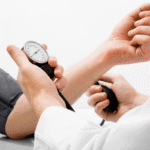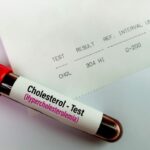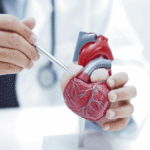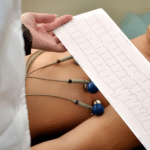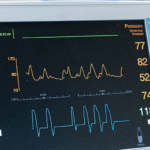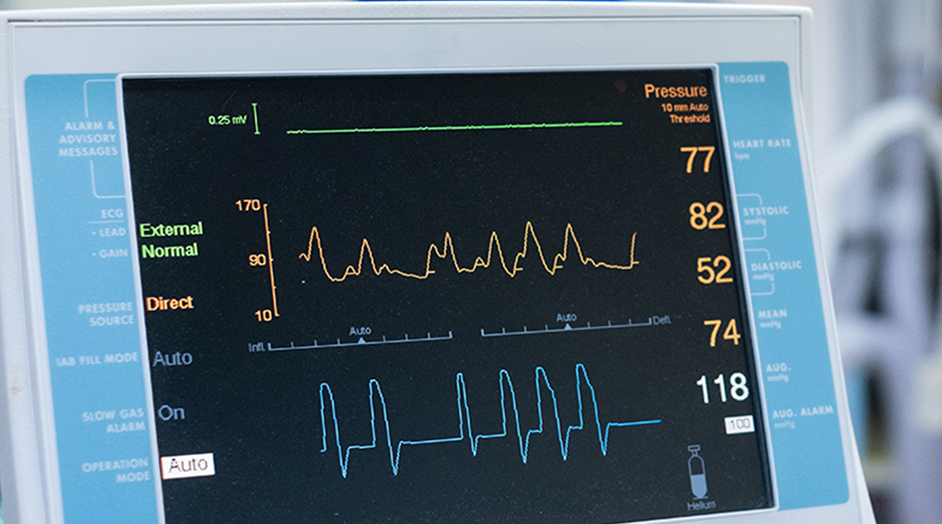Arrhythmia refers to an irregular heartbeat, whether it’s too fast, too slow, or simply erratic. While some arrhythmias are harmless, others can be serious and require medical attention. Anyone can develop an arrhythmia, but certain individuals are at higher risk, including older adults, those with pre-existing heart conditions, and people with a family history of arrhythmias. Early diagnosis and treatment are crucial to prevent complications like stroke or heart failure.
Causes & Risk Factors
Arrhythmias can stem from various causes. These include coronary artery disease, high blood pressure, heart valve problems, thyroid disorders, and sleep apnoea. Genetic factors can also play a role. Major risk factors that contribute include smoking, excessive alcohol or caffeine consumption, obesity, high cholesterol, and certain medications. Lifestyle choices significantly impact your risk.
Symptoms
Symptoms of arrhythmia can vary widely. Some people experience no symptoms at all, while others may feel palpitations (a fluttering or racing heart), dizziness, lightheadedness, shortness of breath, or chest pain. Mild arrhythmias might cause occasional discomfort, while severe arrhythmias can lead to fainting or cardiac arrest. If you experience sudden palpitations, chest pain, or fainting, seek immediate medical attention.
Diagnosis
Diagnosing arrhythmia involves a combination of medical history, physical examination, and diagnostic tests. An electrocardiogram (ECG) is the most common test, recording the electrical activity of your heart. Holter monitors or event recorders can provide longer-term monitoring. Blood tests can check for electrolyte imbalances or thyroid problems. Imaging tests like echocardiograms or MRI scans can assess the structure and function of your heart. Early detection is vital for effective management.
Treatment Options
Treatment for arrhythmia depends on the type and severity. Lifestyle changes are often recommended, including a heart-healthy diet, regular exercise, and smoking cessation. Medications like beta-blockers, antiarrhythmics, or anticoagulants can help control heart rate and rhythm or prevent blood clots. In some cases, medical procedures like cardioversion (electrical shock to restore normal rhythm), ablation (destroying abnormal tissue causing the arrhythmia), or pacemaker implantation may be necessary.
Complications & Risks
Untreated arrhythmias can lead to serious complications, including stroke, heart failure, and sudden cardiac arrest. Certain arrhythmias can cause blood clots to form in the heart, which can travel to the brain and cause a stroke.8 Chronic arrhythmias can significantly impact quality of life, causing fatigue, anxiety, and limiting physical activity.9
Prevention & Management
Preventing arrhythmias involves adopting a heart-healthy lifestyle. This includes maintaining a healthy weight, eating a balanced diet, exercising regularly, and avoiding smoking and excessive alcohol or caffeine. Regular check-ups with your doctor are crucial for monitoring heart health and detecting any changes. Managing underlying conditions like high blood pressure or diabetes is also essential.
If you’re experiencing heart palpitations or any other symptoms of arrhythmia, it’s important to seek medical advice. Our experienced cardiologists can provide comprehensive evaluations, accurate diagnoses, and personalised treatment plans to help you manage your arrhythmia and maintain a healthy heart. Don’t let an irregular heartbeat disrupt your life. Schedule a consultation today and take control of your heart health.

